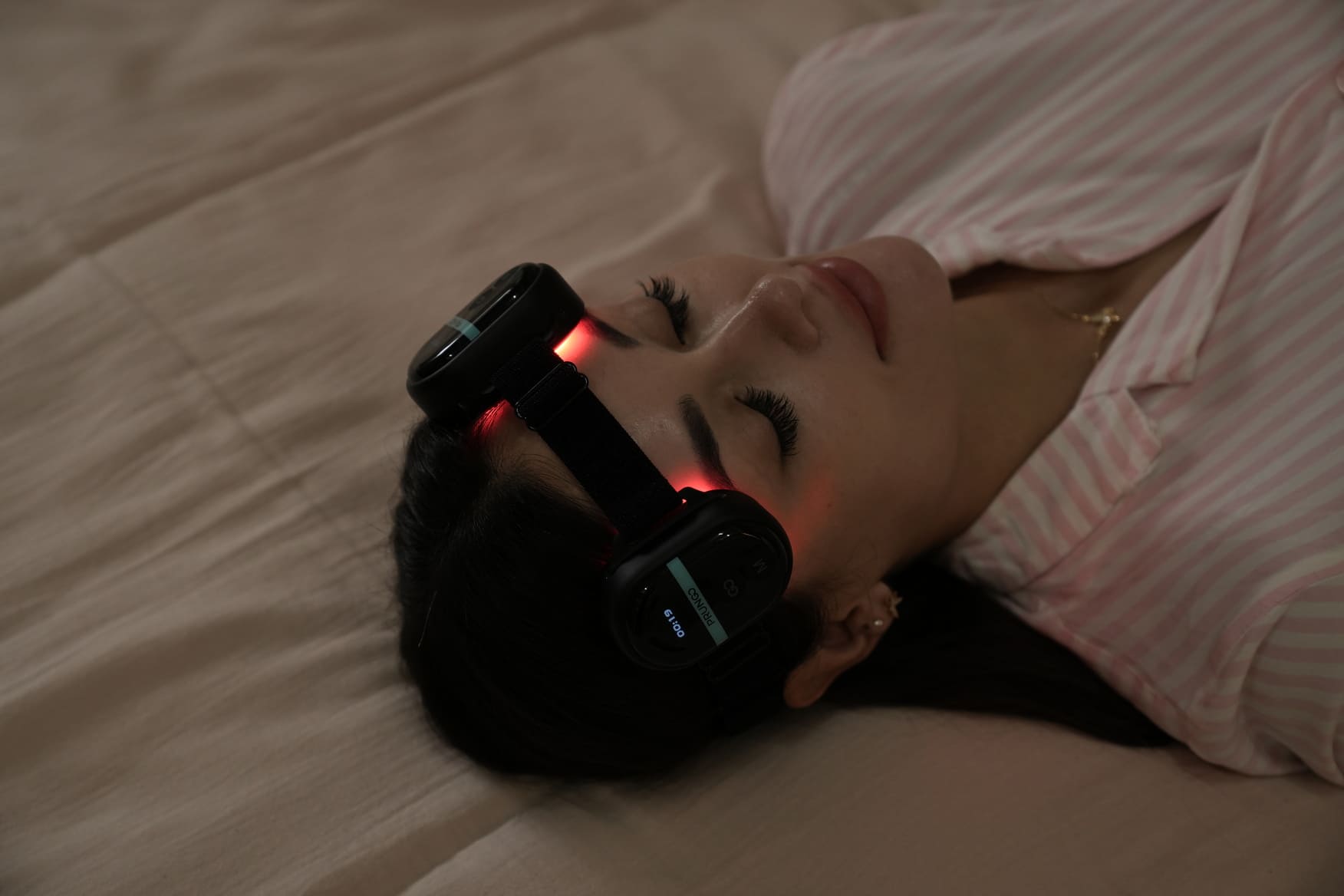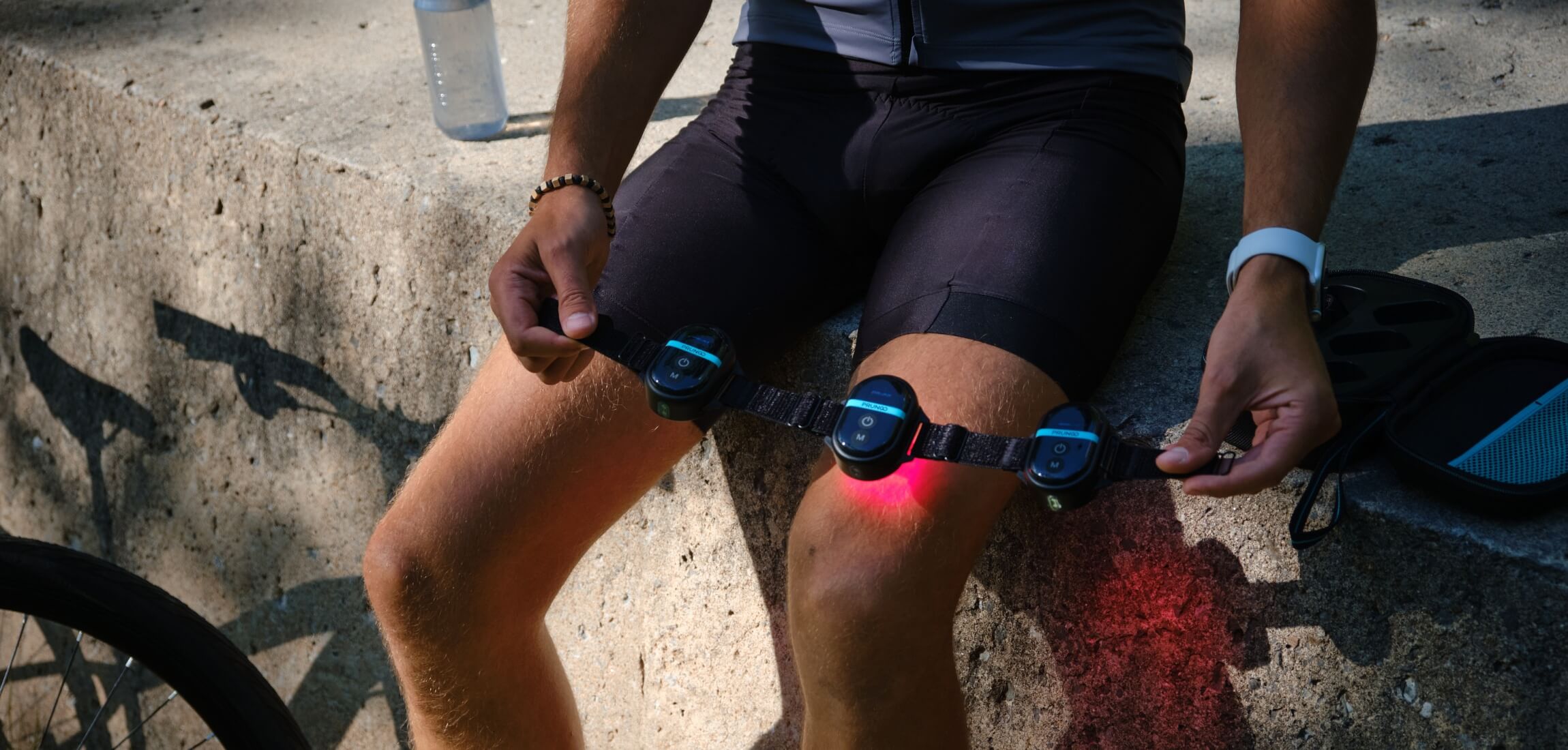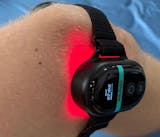Red light therapy devices have attracted much attention in recent years for their efficacy in skin repair, pain relief, and anti-aging, and have gradually become a popular product in the home care and beauty industry.
However, there are many types of red light therapy devices on the market with large differences in performance, price, and technology, and we will have a lot of doubts when choosing one. Therefore, this article will analyze in detail how to choose the best red light therapy device from multiple angles to help you make a wise choice.
Principles and effects of red light therapy
Before choosing a red light therapy device, we need to understand the principle of red light therapy and its effectiveness.
Red light therapy penetrates the surface layer of the skin with specific wavelengths of red light to stimulate cells to produce more energy (ATP), thus promoting cell regeneration and repair. Below are the main effects of the red light therapy device:
1. Promote skin repair
Red light can stimulate collagen production, enhance skin elasticity, reduce the appearance of fine lines and wrinkles, and have a significant improvement in skin aging problems. For skin that is injured or recovering from surgery, red light treatment also has the effect of promoting healing.
2. Relief of pain and inflammation
Red light therapy has a wide range of applications in pain management and anti-inflammatory treatments as well. By accelerating cellular repair and reducing inflammatory responses, red light can relieve symptoms of chronic conditions such as muscle aches and pains, joint pain, and arthritis.
- Arthritis and Chronic Pain: Red light can penetrate the skin into deeper tissues, improving chronic inflammatory problems caused by diseases such as arthritis and relieving joint pain.
- Sports injuries and muscle recovery: muscle soreness after exercise is a common problem. Red light therapy can accelerate muscle tissue repair and reduce inflammatory response, thus shortening recovery time.
3. Improve sleep and mood
Red light therapy is also associated with the nervous system and hormonal regulation. Studies have shown that red light can stimulate the production of melatonin, a hormone that helps regulate the sleep cycle.
Many people report improved sleep quality and an easier time falling asleep after red light therapy. In addition, red light therapy can relieve emotional problems such as stress, anxiety, and depression.
Key Factors to Consider When Choosing a Red Light Therapy Device

Choosing the right red light therapy device depends on a variety of factors, depending on your specific needs and goals. Here are some key considerations to help you choose the right red light therapy device:
1. Purpose and benefits
The first step is to determine what you want to achieve with red light therapy. Different devices may have different effects on skin health, pain relief, muscle recovery, or hair growth. Being clear about your main goals can help you choose the right wavelength of a red light therapy device.
2. Wavelength
The common wavelengths of red light therapy range from 600nm to 850nm. Each wavelength range has different therapeutic effects, so you need to choose according to your needs.
- 630nm to 660nm: Mainly used for superficial skin problems, such as anti-aging, improving skin color, and reducing wrinkles. This band of red light is suitable for beauty enthusiasts.
- 810nm to 850nm: This type of infrared light penetrates deeper into the skin and is suitable for pain relief and promoting deep tissue repair. This is more suitable for users who need to address arthritis or sports injuries.
3. Output power (mW/cm²)
The output power of the red light therapy instrument determines the intensity of light energy and the effectiveness of treatment. Too low output power will result in a less effective and longer treatment, while too high power may cause skin irritation or even burns.
Generally speaking, the power range of household devices is 20-100mW/cm², and the strength of the device and the needs of the treatment area need to be considered when choosing.
- 20-50mW/cm²: suitable for skin care and superficial repair.
- 50-100mW/cm²: suitable for pain relief and deep tissue repair.
4. Irradiation area
The irradiation area of a red light therapy device determines the size of the area that can be covered by each treatment. Large-area irradiators are suitable for users who need full-body or large-area treatment, such as arthritis patients or people who want full-body cosmetic treatments.
For localized problems, such as facial aesthetics or localized pain, small-area red light therapy devices are more practical, easy to operate, and easy to travel with.
PRUNGO's red light therapy module is a wearable red light therapy device that can be attached to any part of the body (e.g. head, shoulders, waist, legs, ankles, etc.).
PRUNGO portable red light therapy, small and cute, whether it is traveling or at home is very convenient; mainly they also equipped with a 5000mAh portable charging case for this red light therapy module, and it only 4 hours to complete the charging (the charging case of the battery can be used to recharge a module 5 times) is one of the best-localized treatment at home.

5. Ease of use
Red light therapy devices for home use need to consider the simplicity of their operation. Modern red light devices are usually designed to be lightweight with an easy-to-use control panel, and some even come with a smartphone app control that allows users to adjust the irradiation time, power, and other parameters as needed at any time.
In addition, portability is also a factor to consider when choosing a device, especially for users who wish to continue treatment while traveling.
- Lightweight devices: suitable for daily portable use, such as the PRUNGO Red Light Therapy Module, a compact red light therapy panel.
- Stationary devices: Usually more powerful and suitable for treatment in a fixed location at home, such as large area red light lamps or bed-based devices.
6. Safety and Certification
When choosing a red light therapy device, choose one like PRUNGO's red light therapy devices that have received FDA certification in the U.S. This FDA certification is a common safety mark of approval. These certifications ensure that the device meets international standards to avoid potential health risks.
Devices that are not certified may have issues such as unstable power output and unsafe materials, so it is prudent to carefully understand these issues when choosing one.
It is also important to check that the device has an automatic shut-off function to prevent skin burns or other problems caused by prolonged use.
7. Price and cost-effectiveness
The price of red light therapy devices ranges from a few hundred dollars to a few thousand dollars. Devices with more features, a wider range of wavelengths, and higher output power are usually more expensive. When choosing, you need to weigh the cost-effectiveness of the device according to your budget and needs.
- Low-priced devices: Suitable for light users, usually with fewer functions, for localized care or beginners.
- Mid- to high-priced devices: more comprehensive functions, suitable for users with long-term cosmetic or therapeutic needs. Most high-end devices come with a variety of wavelength combinations, suitable for a full range of treatments for different needs.
8. After-sales guarantee
There are many brands of red light therapy devices on the market, and when choosing one, you should prioritize the after-sales service provided by the brand to see if it offers more than one year of warranty service.
Before purchasing, it is also good to check the evaluation of other users, especially for the effectiveness, durability, and after-sales service of the product.
How to choose a red light therapy device according to individual needs

After understanding the various parameters of the red light therapy device, the next step is to choose the most suitable device according to your personal needs.
1. Cosmetic Skin Needs
If the main purpose is to improve skin health, such as reducing wrinkles, restoring radiance, or removing blemishes, you can choose a red light therapy device with a wavelength of 630nm to 660nm.
These devices usually have lower output power and are suitable for sensitive areas such as the face and neck. It is recommended to choose smaller, lightweight, and easy-to-operate handheld devices for daily use.
2. Pain management and tissue repair
For users with sports injuries, arthritis, or chronic pain, it is recommended to choose devices with wavelengths between 810nm and 850nm. These devices are usually more powerful and penetrating and can act more effectively on deeper tissues. Stationary large-area irradiators may be a more appropriate choice, capable of covering multiple joints or large areas of pain.
Each module of PRUNGO's Red Light Therapy device contains 6*650nm red LEDs and 4*850nm infrared light, allowing you to choose the appropriate wavelength for your pain level.
Red light therapy usage tips and precautions
Red light therapy (RLT) is growing in popularity due to its potential benefits in skin rejuvenation, pain relief, and muscle recovery. Therefore, it is important to understand the basic tips and considerations when using a red light therapy device:
1. Frequency of use
The effect of red light therapy usually takes a sustained period to show up. It is generally recommended to have 3 to 5 treatments per week, with each treatment lasting 10 to 20 minutes.
When using it for the first time, you can start with low power and short time and increase gradually to avoid skin discomfort.
2. Prevent over-exposure
Although red light therapy is relatively safe, overuse may cause skin irritation or burns. Ensure that you set the irradiation time and power reasonably according to the recommendations in the device manual and avoid irradiating the same area for a long period.
3. Cooperate with moisturizing care
Skin may be dry for a short period after red light treatment, therefore, it is recommended to use moisturizing products after the treatment to help enhance the skin's repairing effect.
Conclusion
Red light therapy devices have become a popular choice in beauty and health care as a non-invasive and effective treatment. When choosing a red light therapy device, one needs to focus on factors such as wavelength, output power, irradiation area, convenience, and safety certification.
Through proper selection and use, red light therapy devices can bring significant improvements in skin care, pain relief, and health promotion.
Whether you are looking to improve the condition of your skin or wish to relieve body pain, choosing a red light therapy device that is right for you will help you achieve these health and beauty goals.
Related reading: FDA-Approved Red Light Therapy Benefits





Share:
Best Red Light Therapy Devices in 2024
Red Light Panels vs Red Light Therapy Module: What’s the Difference?